EU’s Police State of Exclusion and Fear
Two bombs in Brussels shook Belgium and the rest of Europe to the core. The event was a nightmarish flash back to the Paris attacks of November, 2015. In both cases, locally born and recruited elements of Daesh (ISIS) did the unthinkable. In Europe, just as elsewhere worldwide, security has overwhelmed the discourse. Some, from the right as well as the left, have said that the vast security apparatus of the United States, with the Department of Home Land Security and repressive law such as the Patriot Act, should be emulated in Europe. Others have said that the Israeli security model had some excellent results. No matter where the next bomb attack will be, if citizens do not fight against their own fears, they will allow to be imposed upon them the burden of state of emergencies, arbitrary arrests, and troops occupying their streets and land. Older Europeans might even then wonder what was the point of fighting Nazi Germany. Is this the future we want? Do we want to be constantly spied on and brutally occupied from within by the anonymous robocops of the Orwellian empire?
Assault on Europe’s open life style
The attacks like those in Brussels and Paris are designed to make people fearful and suspicious of one another. This does, unfortunately, work. The sense that death could be imminent and could come at anytime from anywhere makes most people want to withdraw in their little universe that they can control, either real, but more frequently virtual. It is a safe cocoon to escape from reality or look at it, but only through rosy glasses. This also entails that some Europeans might consider giving up the moral principles of the Union: an open society not only for goods and services, but also, most importantly, a free and tolerant zone for people and ideas. The dream of the European Union was to create a space where human rights, civil liberties and freedom of speech could not only matter but thrive. From the cold hashes of the mayhem of World War II, the EU was a promise of peace, and the resolution of European conflicts with words and not bullets. The promise of a functional cultural, ethnic and religious melting pot.
Police state of emergency: darkness of boots and guns in the City of Lights
The EU’s goal was never to be just a free market for the benefit of giant corporations. Instead, the ambitious intention was to offer a social and moral alternative to the US system based almost entirely on greed. Europe is still a place where people value quality of life more than its quantitative aspects, as opposed to the US. Since the Paris and Brussels attacks, the qualitative versus quantitative debate has been replaced by a fog of fear, which almost automatically allows governments to expand their security apparatus. Europeans citizens have to decide now if what they want is an EU of exclusion, where a police state apparatus would be omnipresent, patrolling the streets in full combat gear or dispatching its Robocop riot police to suppress any mass protest.
Since the Paris attacks, France has lived under a state emergency law. In mid-February 2016, the French parliament, by a wide majority, shamelessly voted for this law’s extension until May 26, 2016. When people think of Paris, they usually think of its art, and the kind of joie de vivre expressed by young couples kissing innocently in the streets. The jack boots and guns of the military and police patrolling the streets are not part of this scenery. What Paris symbolizes is the exact opposite, it is a sense of respect for individual freedom and dissent, a feeling of joy that comes from rich layers of history. Police state repression is a notion that should not be tolerated. If European governments are truly interested in dealing with their home-brewed Jihadist problem, they should talk with their Saudi and Qatari friends who have, to serve their geopolitical ambitions, actively sponsored Jihad for more than three decades.
Saudi Arabia and Qatar’s patient ideological war against the EU
The root cause of the so-called global war on terror resides mainly in Saudi Arabia and, to a lesser extend, Qatar. Besides oil, Islamic fundamentalist ideology, either Wahhabism or Salafism, has been the Gulf states’ lead export and weapon of war for more than three decades. Saudis and Qatari run two different and perfectly contradictory tracks: on one hand, the ideological one thru building lavish mosques run by fundamentalist Imans, on the other hand, and this shows their complete hypocrisy, they also invest in Western decadence, vice, and sports. As an example, the hotel George V in Paris is owned by the Saudi royals, while the biggest football team in France, Paris St Germain, is owned by a Qatari sheik. This blatant contradiction of investments in what is viewed as vice by their own ideologues (hotel George V for the Saudis) is balanced by what some would called virtuous actions, such as building mosques and providing poor Muslims free food through charities. While building huge mosques and funding Muslim charities could be wrongly viewed as altruistic, this dual strategy is meant to radicalize and then recruit Daesh’s mercenaries or suicide bombers from among young European Muslims who live on the fringes of European society. This strategy of expansion of their fundamentalist brand of Islam by the Saudis and the Qataris would have likely failed if a policy of genuine integration had been implemented by Europeans.
Integration, not police state security, should be considered by EU’s policymakers
The so-called war on terror has been a lost battle because it is an acute symptom, but not the root cause of the problem. During the economic boom of the early 1960s, most European countries were eager to welcome foreign workers: Turks in Germany; Pakistanis and Indians in the United Kingdom; Algerians, Tunisians and Morrocans in France. Most of the Arab and Turk migrants at the time were secular or moderate Muslims. They thought that very soon perhaps not them but their children would become integrated into Europe’s social fabric as full-fledged members. It was never the case. Arabs and Turks were put in poorly built housing projects as far from the center of the cities as possible. Racism, if not expressed formally and publicly, has been in the European social subtext for three generations. Young Muslims who live on the fringes of European society have therefore become easy targets for the Imans to transform into Jihadists. If young European-born Arabs in France, Belgium and the Netherlands; Turks in Germany, and Pakistanis in the UK had been truly integrated in European societies, they would not be such easy preys to be brainwashed by fundamentalist Imans in the Mosques. They were never invited at the table of Europe’s Caucasian middle class; instead they have fought for crumbs, sometimes for three generations.
Editor’s Notes: Listen to a March 26, 2016 interview of Gilbert Mercier on Radio Sputnik. Gilbert Mercier is the author of The Orwellian Empire. Photograph one by Benjamin Stephan; two by Thierry Ehrmann; three by Oscar; four by Miguel Vera Leon; five and six by Looking 4 Poetry; and seven by Gilbert Mercier.
Related Articles


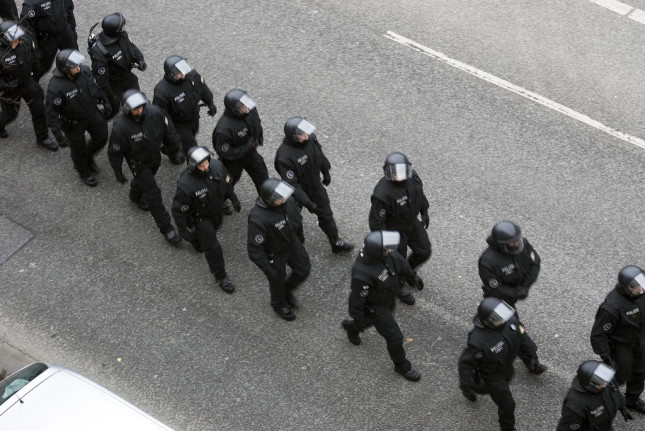
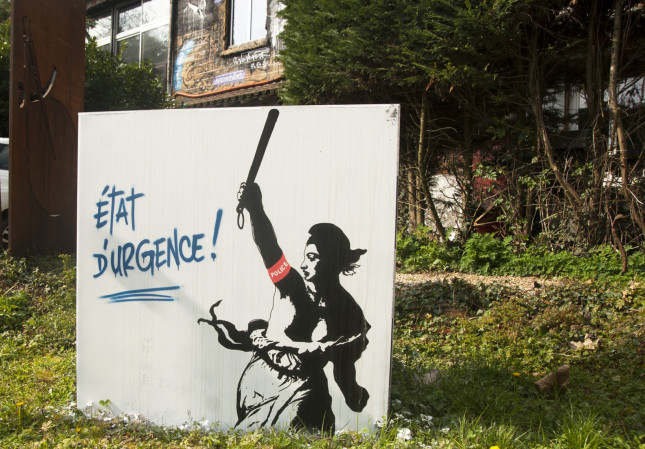
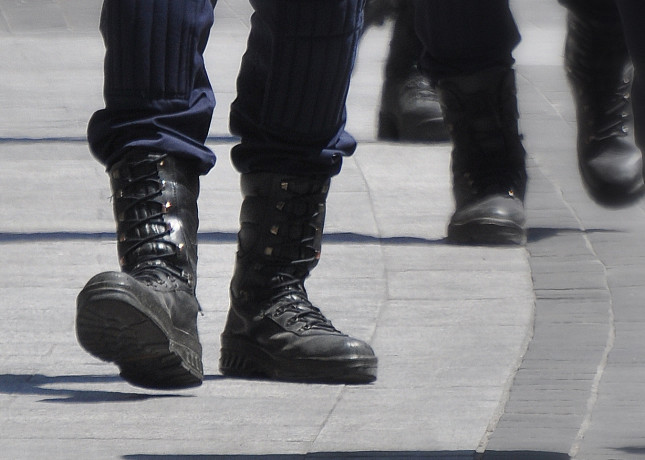
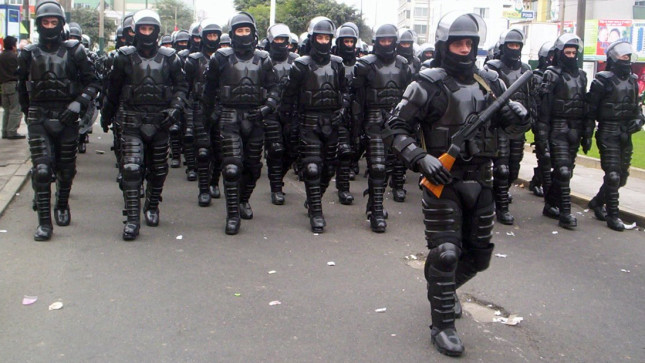
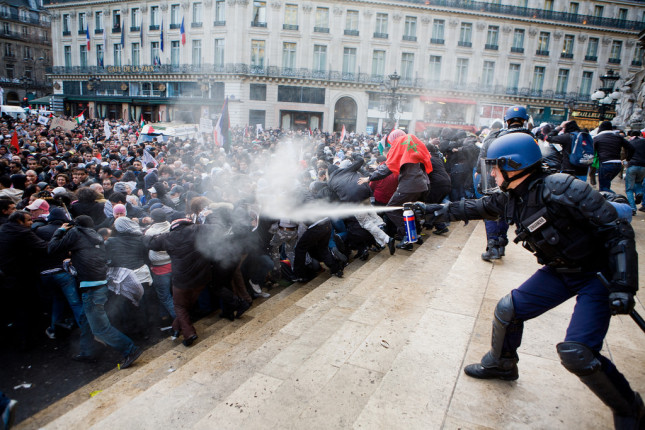
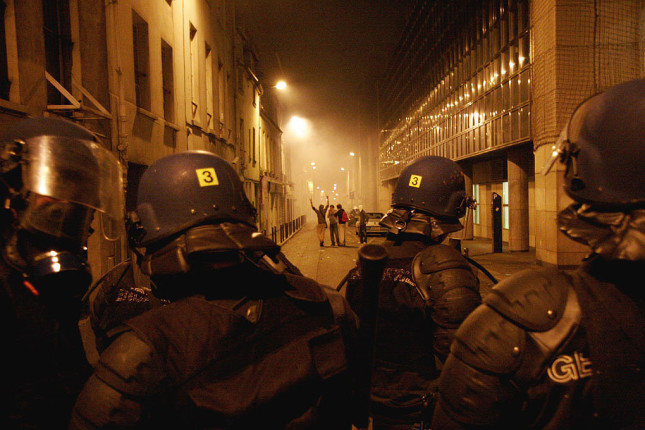












You must be logged in to post a comment Login